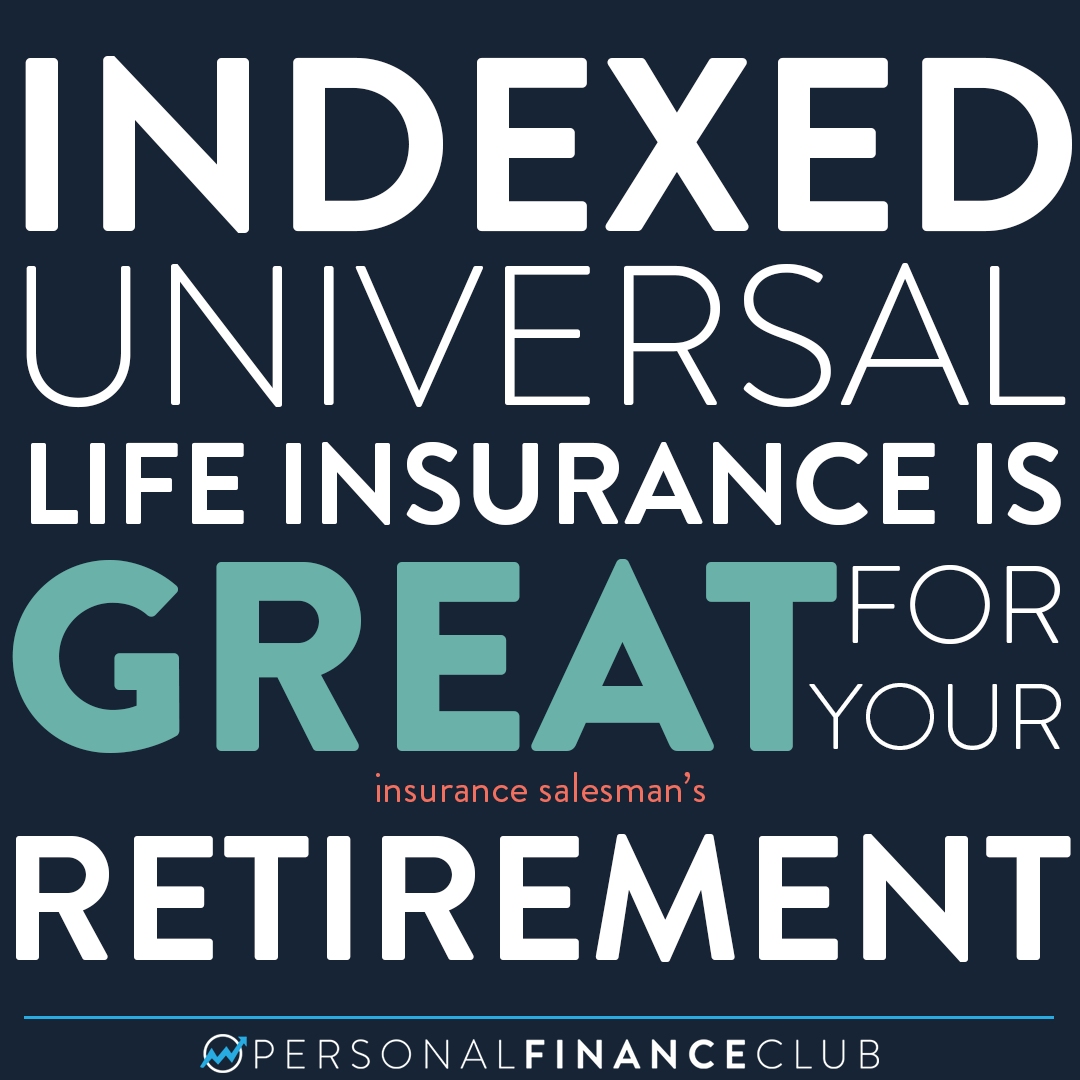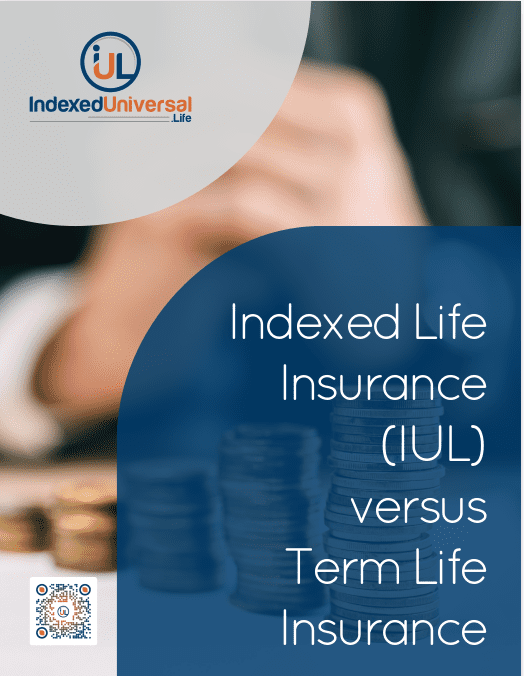All Categories
Featured
Table of Contents
Indexed Universal Life (IUL) insurance policy is a kind of long-term life insurance policy policy that incorporates the attributes of typical global life insurance policy with the capacity for money worth growth linked to the performance of a stock market index, such as the S&P 500 (Indexed Universal Life interest crediting). Like other types of permanent life insurance policy, IUL offers a fatality benefit that pays to the recipients when the insured passes away
Cash worth buildup: A portion of the costs payments goes into a money value account, which gains rate of interest with time. This money worth can be accessed or borrowed versus during the insurance policy holder's lifetime. Indexing choice: IUL plans use the possibility for cash worth development based on the performance of a stock market index.
Who are the cheapest Iul For Wealth Building providers?
As with all life insurance policy products, there is likewise a set of threats that insurance holders must recognize before considering this kind of plan: Market danger: Among the main risks related to IUL is market danger. Since the cash money value growth is connected to the performance of a securities market index, if the index chokes up, the cash worth may not expand as anticipated.

Sufficient liquidity: Insurance holders should have a stable economic situation and fit with the exceptional repayment demands of the IUL plan. IUL enables versatile premium payments within specific limitations, however it's necessary to keep the policy to guarantee it accomplishes its intended goals. Rate of interest in life insurance policy protection: People who need life insurance policy protection and a rate of interest in cash worth growth may discover IUL attractive.
Candidates for IUL need to be able to understand the mechanics of the policy. IUL may not be the very best option for people with a high resistance for market danger, those who focus on low-priced investments, or those with more instant monetary demands. Consulting with a certified economic expert that can give customized support is vital prior to considering an IUL plan.
All registrants will receive a schedule invitation and web link to join the webinar using Zoom. Can not make it live? Register anyhow and we'll send you a recording of the discussion the next day.
Who are the cheapest Indexed Universal Life Companies providers?
You can underpay or avoid costs, plus you may be able to readjust your fatality benefit.
Cash money value, along with potential growth of that value with an equity index account. An alternative to allocate part of the cash money worth to a set passion alternative.
Insurance holders can choose the percentage alloted to the taken care of and indexed accounts. The value of the chosen index is tape-recorded at the beginning of the month and contrasted with the value at the end of the month. If the index raises during the month, interest is included in the cash money value.
The resulting interest is added to the cash value. Some plans calculate the index acquires as the sum of the adjustments for the period, while various other plans take an average of the daily gains for a month.
Who has the best customer service for Iul Death Benefit?
The rate is set by the insurer and can be anywhere from 25% to more than 100%. (The insurance company can also change the take part price over the lifetime of the plan.) As an example, if the gain is 6%, the involvement rate is 50%, and the present cash money value total is $10,000, $300 is contributed to the cash money worth (6% x 50% x $10,000 = $300).
There are a variety of pros and disadvantages to take into consideration before acquiring an IUL policy.: Similar to conventional universal life insurance policy, the insurance policy holder can boost their costs or lower them in times of hardship.: Quantities attributed to the cash money worth grow tax-deferred. The cash money value can pay the insurance coverage premiums, allowing the insurance holder to reduce or stop making out-of-pocket premium repayments.
Indexed Universal Life Insurance
Several IUL policies have a later maturation day than various other sorts of universal life policies, with some ending when the insured reaches age 121 or more. If the insured is still active back then, policies pay the survivor benefit (yet not normally the money value) and the proceeds might be taxable.

: Smaller sized policy stated value do not use much benefit over routine UL insurance policy policies.: If the index decreases, no rate of interest is attributed to the money value. (Some plans offer a reduced guaranteed rate over a longer duration.) Various other investment automobiles make use of market indexes as a criteria for performance.
With IUL, the goal is to make money from higher activities in the index.: Since the insurer just gets choices in an index, you're not directly bought stocks, so you do not benefit when business pay dividends to shareholders.: Insurers charge costs for handling your cash, which can drain pipes cash worth.
What happens if I don’t have Iul Insurance?

For many people, no, IUL isn't much better than a 401(k) - IUL for retirement income in terms of conserving for retired life. A lot of IULs are best for high-net-worth individuals looking for ways to reduce their gross income or those that have maxed out their other retirement choices. For everyone else, a 401(k) is a far better financial investment vehicle because it doesn't bring the high charges and premiums of an IUL, plus there is no cap on the quantity you may earn (unlike with an IUL plan)
While you might not lose any money in the account if the index goes down, you won't make passion. If the marketplace transforms favorable, the incomes on your IUL will not be as high as a common investment account. The high cost of premiums and costs makes IULs expensive and substantially less affordable than term life.
Indexed global life (IUL) insurance uses cash money worth plus a death advantage. The cash in the money worth account can make passion via tracking an equity index, and with some frequently assigned to a fixed-rate account. However, Indexed global life plans cap exactly how much cash you can build up (usually at much less than 100%) and they are based on a possibly volatile equity index.
Can I get Indexed Universal Life Policyholders online?
A 401(k) is a far better option for that purpose due to the fact that it does not lug the high fees and premiums of an IUL policy, plus there is no cap on the quantity you may gain when invested. The majority of IUL plans are best for high-net-worth people seeking to lower their taxed income. Investopedia does not provide tax obligation, investment, or financial services and guidance.
If you're considering purchasing an indexed universal life plan, initial talk with a monetary consultant who can clarify the nuances and provide you a precise image of the actual potential of an IUL plan. Ensure you recognize exactly how the insurance firm will certainly compute your rates of interest, profits cap, and charges that could be evaluated.
Latest Posts
Iul L
Best Indexed Universal Life Insurance Policies
Can I Cash Out My Universal Life Insurance Policy